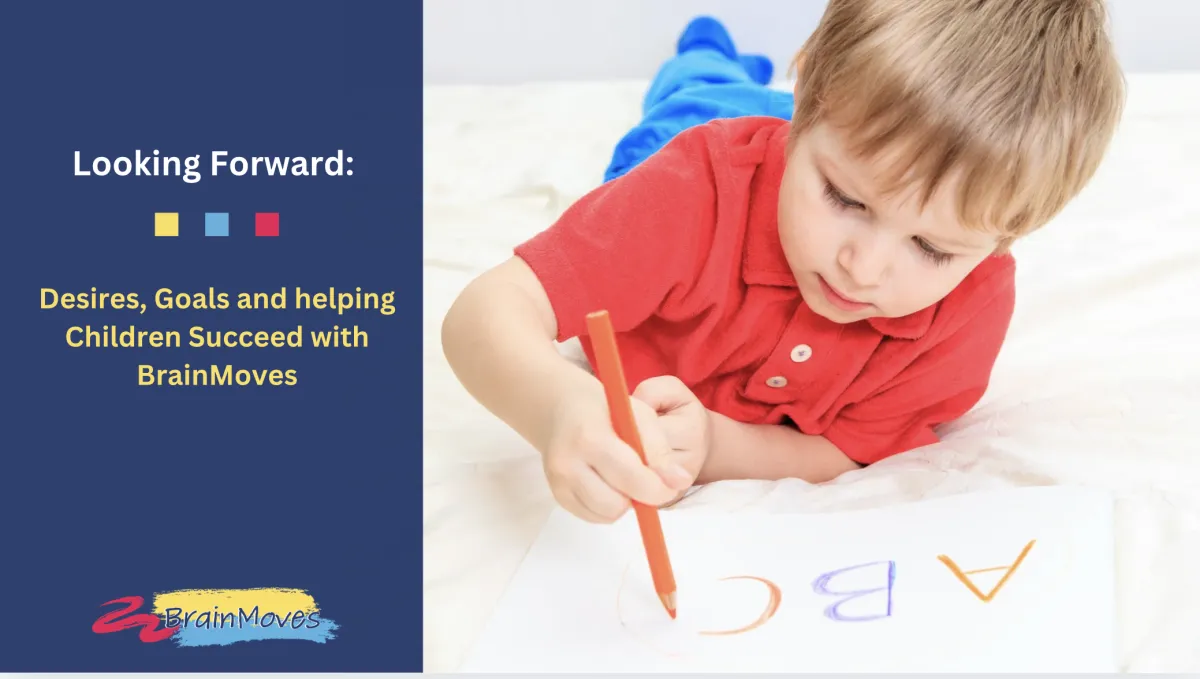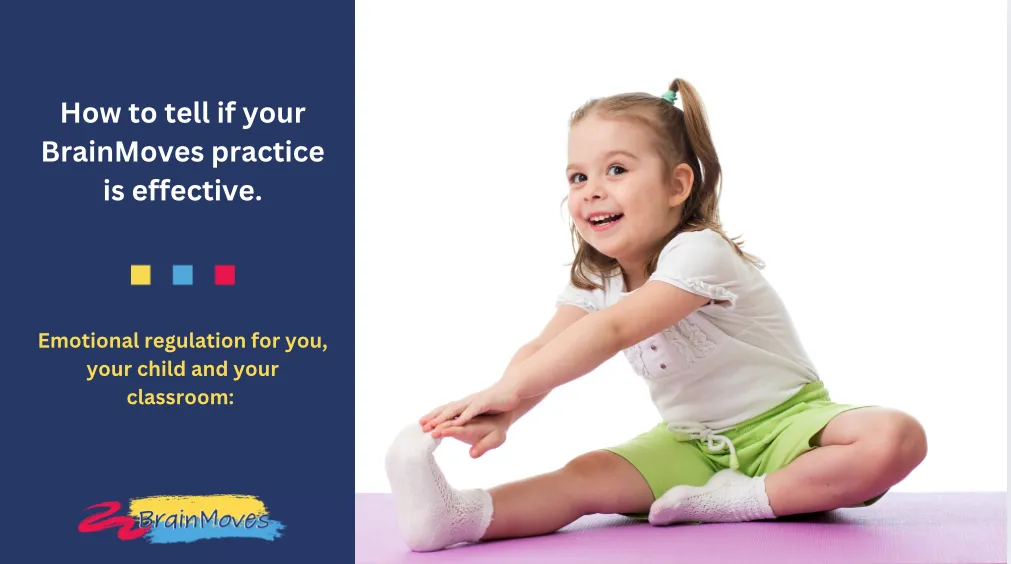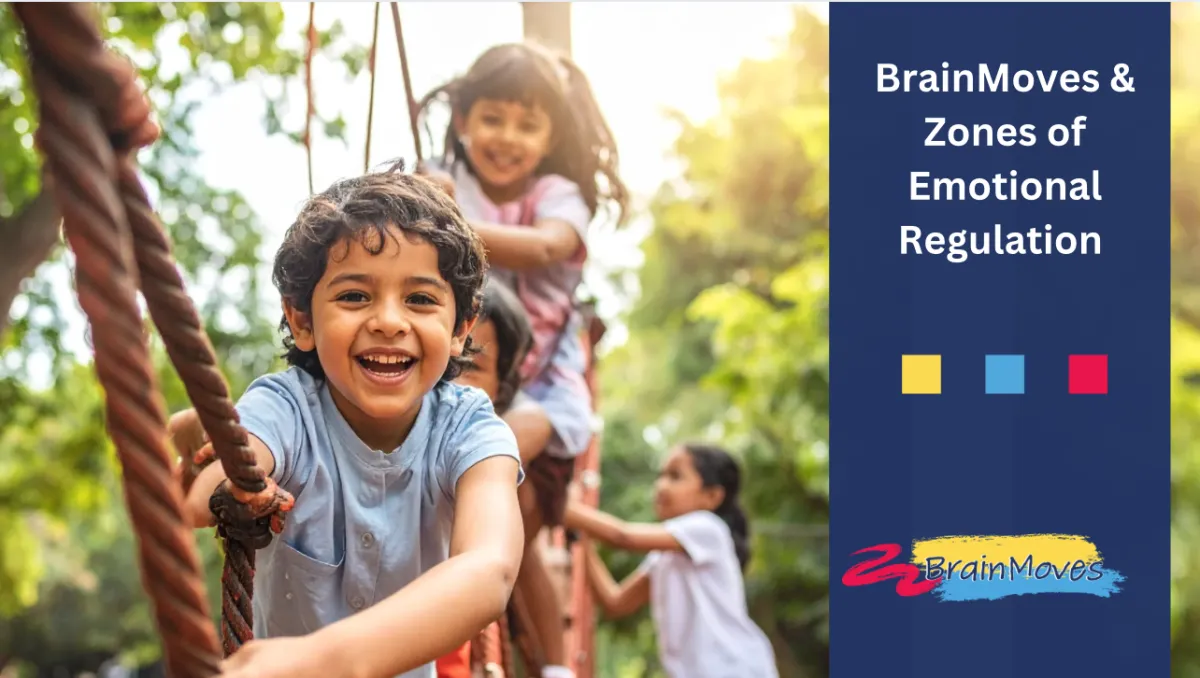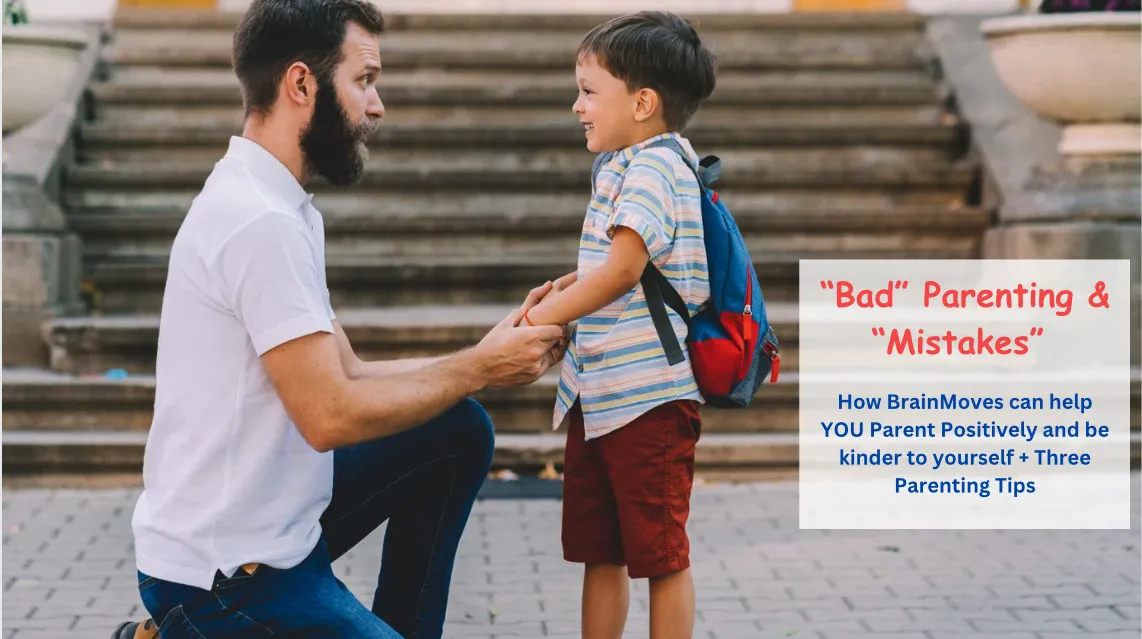Looking Forward: Desires, Goals and helping Children Succeed with BrainMoves
Today, we're going to talk about behavior improvement and resolutions. It seems like a great topic for a 2026 blog post. The very formal idea of New Year’s resolutions can be either positive or negative for adults. Some people treat resolutions with perfectionism, only to feel the side effects of not achieving sometimes unreasonable goals. Others are energized and focused by the idea of having two or three things upon which to concentrate their energy. Both of these are very adult understandings of resolutions. Yet we also have things we’d like to see improve for the young people in our lives, so this seems like a good time to talk about resolutions or goals for preschoolers and kindergartners and how they relate to BrainMoves.
Emotional regulation for you, your child and your classroom: How to tell if your BrainMoves practice is effective
Today, we will take a dive into emotional regulation and how to determine if someone is emotionally regulated or simply shut down. We will define what a regulated individual looks like and discuss how to measure somatic regulation before and after doing a BrainMoves movement. Let’s start by defining what emotional regulation looks like. Is a regulated individual someone who doesn't feel emotions strongly? Can a regulated individual have outbursts of excitement or strong feelings? To be emotionally regulated is not to be devoid of feeling, but rather to experience a balanced range of emotions.
Emotional Regulation & BrainMoves
On the BrainMoves blog, we often talk about feeling more focused, more peaceful, more content, and more able to learn. A frequent topic of conversation among educators, parents, and those interested in neurodiversity is the concept of emotional regulation. Like many terms that have searchability, emotional regulation runs the risk of becoming clickbait and is not frequently defined. Emotional regulation means developing emotions that are fully formed and can be identified, but are not extreme. It means that when an individual feels they’re reaching one of the polar edges of their emotional experience, they can bring themselves back to center. This can be done through grounding activities, motions, and movements. At its core, BrainMoves is all about emotional regulation and integrating the physical and mental experience. This is the reason why BrainMoves is so incredibly useful for preschoolers and kindergarteners, who sometimes lack the ability to express how they’re feeling except through their behavior.
“BAD” Parenting and “MISTAKES.” How BrainMoves can help YOU Parent Positively and be Kinder to Yourself + Three Parenting Tips
Being a mother or father to a preschooler can feel like an impossible job. If it is your first child or your third, sometimes you may feel like you are one day before a complicated review and you forgot to hand in a work project or that you have been given a new role but have no onboarding for how it should happen. Of course, mistakes will happen. Your child is unique; you are unique. Every situation is unique. There is no guidebook. There’s also no black and white. Remember that part of childhood development is transitioning from black-and-white thinking into a more nuanced way of reviewing our world. When we’re stressed, we, as adults, can sometimes revert back to that childhood black-and-white thinking. What does this mean for parenting? You may feel a situation is disastrous: Maybe you’ve said the wrong thing and the child cried, you lost your temper, or maybe you forgot something important like a parent-teacher meeting or a doctor’s appointment. Perhaps you simply overcommitted yourself and you don’t feel “present.” In that moment it may feel like the exact opposite of what should have happened HAS happened and you feel guilty. Your brain could process this as “Oh, that was a mistake. That was BAD.”





